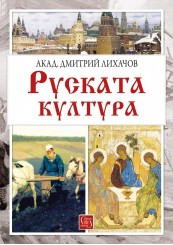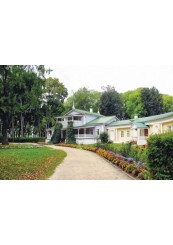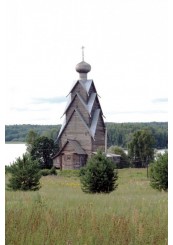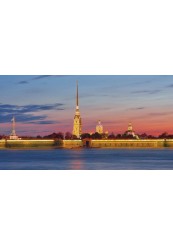Acad. Dmitry Likhachov
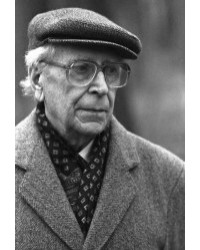
Dmitry Sergeyevich Likhachov (1906–1999) was an outstanding Russian medievalist, linguist, and concentration camp survivor. During his lifetime, Likhachov was considered the world's foremost scholar of the Old Russian language and its literature.
He was revered as "the last of old St Petersburgers", and as "a guardian of national culture". Due to his high profile as a Soviet dissident during his later life, Likhachov was often referred to as "Russia's conscience".
Dmitry Likhachov was born in Saint Petersburg. From his early childhood he had a passion for literature, even though his parents did not approve of this interest.
In a 1987 interview with David Remnick, Likhachov recalled how he had, "watched the February and October Revolutions from his window."
In 1923, at only 16 years old, Likhachov entered the Department of Linguistics and Literature of Leningrad State University. He attended the Roman-Germanic and Slavic-Russian sections at the same time, undertaking two diplomas. At the university the young Likhachov met many outstanding scientists and developed his own way of thinking. In 1928, at the end of his studies, Likhachyov was arrested and accused of being a member of what Remnick called, "a students' literary group called the Cosmic Academy of Sciences", which "posed about as great a threat to the Kremlin as the Harvard Lampoon does to the White House."
For his election as an Academician, Likhachyov had presented a short report, in which he poked fun at the new spelling rules of 1918and urged that they be "reformed" by restoring the banned letter "Yat". After his arrest, Likhachyov was confronted with the paper by a Soviet secret police interrogator, who screamed, "What do you mean by language reform? Perhaps we won't even have any language at all under Socialism!"
After nine months in jail, the young scientist was unlawfully exiled without trial and spent five years in the USSR's first concentration camp, located on the Solovetsky Islands in the White Sea.
At the camp, hard work, poor living conditions and illness dramatically damaged Likhachov's health, but he survived. On the Solovetsky Islands he met both exiled Russian intellectuals and real criminals, who happened to save his life. As Dmitry Likhachov said many years later, "At the Solovki, I understood that every person is a person."
Whilst on the islands, for some period of time Dmitry Likhachov worked as a member of the Criminological Cabinet, organizing a labor colony for teenagers and saving them from death caused by hunger, drugs, and cold.

